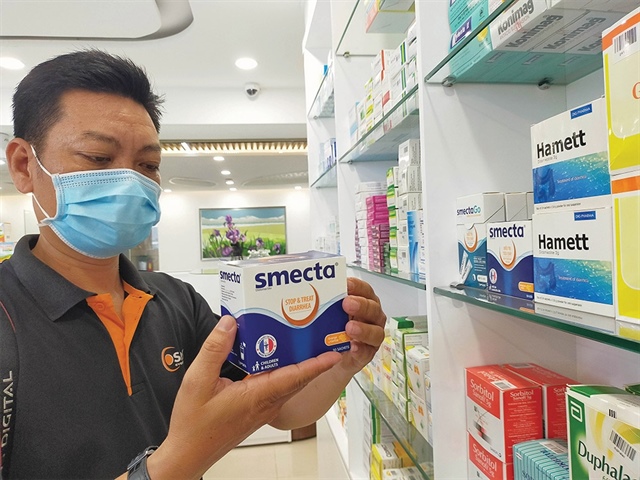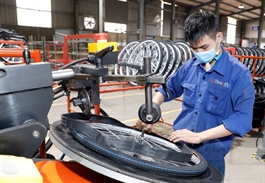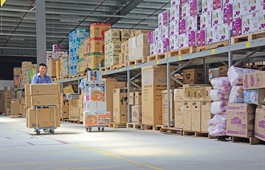Domestic firms under duress with new rules
Domestic firms under duress with new rules
While the amended Law on Pharmacy 2024 is expected to facilitate future performance of foreign-invested enterprises, it might increase pressure on local businesses, urging them to make quick changes to adapt.
Erik Wiebols, general manager for Novo Nordisk Vietnam, is waiting for guiding regulations for the amended Law on Pharmacy (LoP), which was adopted in November, to enjoy positive changes for foreign-invested enterprises (FIEs).
“This revision marks a significant step forward in addressing key shortcomings of the 2016 law while incorporating practices that are successfully implemented in other countries. Notable improvements include the introduction of the regulatory reliance mechanism to streamline medicine registration timelines and the simplification of the marketing authorisation (MA) renewal process,” he said.
“The introduction of the regulatory reliance mechanism and simplification of MA renewals align with global best practices. These changes are complemented by incentives for sector development, such as local manufacturing and clinical trials, as well as the reduction of administrative procedures,” Wiebols added.
The regulatory reliance mechanism and MAs are among the new improvements in the law. The others include expanding the business rights of FIEs in distribution in certain areas.
Like Novo Nordisk Vietnam, member companies of Pharma Group, which represents the voice of more than 20 multinational corporations, are also waiting to see how the law pans out.
“The strong commitment and efforts to develop the pharmaceutical sector are evident in the new incentives introduced to encourage clinical trials and the local manufacturing of innovative medicines. We look forward to the effective implementation of these incentives for the pharma sector development, led by the national steering committee, for improving the sector’s attractiveness and increasing Vietnam’s competitiveness, especially compared to other ASEAN countries in a long-term vision,” said Darrell Oh, chairman of Pharma Group.

A more open market means Vietnam must be flexible when adjusting pharma regulations, photo Le Toan |
Vietnam has joined many free trade agreements with commitments to open the market and institutional reform. These international treaties require Vietnam to flexibly adjust legal regulations in the pharmaceutical industry, specifically the LoP, to both comply with the commitments and promote a transparent business environment and engage foreign investors.
Before the official adjustment of the LoP 2016, the business rights of FIEs were mainly regulated in sub-law documents, leading to a lack of stability and transparency. The rights of FIEs to distribute drugs and pharmaceutical ingredients were also limited, making it difficult for FIEs to penetrate deeply into the domestic supply chain and reducing the incentive to invest in domestic production.
“The revised LoP specifies the rights and responsibilities of FIEs to ensure publicity and transparency in state management, which is considered a new step forward for the legal system of the domestic pharmaceutical industry,” said an HM&P lawyer. “Streamlining procedures will help businesses quickly bring products to market, save time and costs, increase operational efficiency and have more resources to invest in other areas. This will reduce the burden and encourage businesses.”
In particular, the new regulation expands the business rights of FIEs in Vietnam, allowing them to participate more deeply in Vietnam’s pharmaceutical supply chain. This includes allowing them to directly distribute drugs produced by themselves, place orders for processing, and transfer technology in the country to draw investment.
Senior pharma expert Phuong Nguyen said, “These incentives create great motivation for FIEs to implement long-term projects in Vietnam, not only in production but also in research and development activities. The participation of FIEs in strategic areas helps improve domestic production capacity, promote technology transfer and pharmaceutical industry innovation.”
Nguyen, however, warned that the two-sided nature of the incentive mechanism will significantly increase competitive pressure on domestic enterprises. Therefore, a monitoring mechanism to ensure that this benefit is fairly distributed between domestic firms and FIEs is needed.
“Domestic enterprises may have difficulty competing with FIEs in terms of financial capacity, technology and ability to distribute drugs and pharmaceutical ingredients,” he said. “To develop original brand name drugs, domestic pharmaceutical enterprises need to invest heavily in research and development activities, causing many difficulties due to the huge costs and long time.”



























